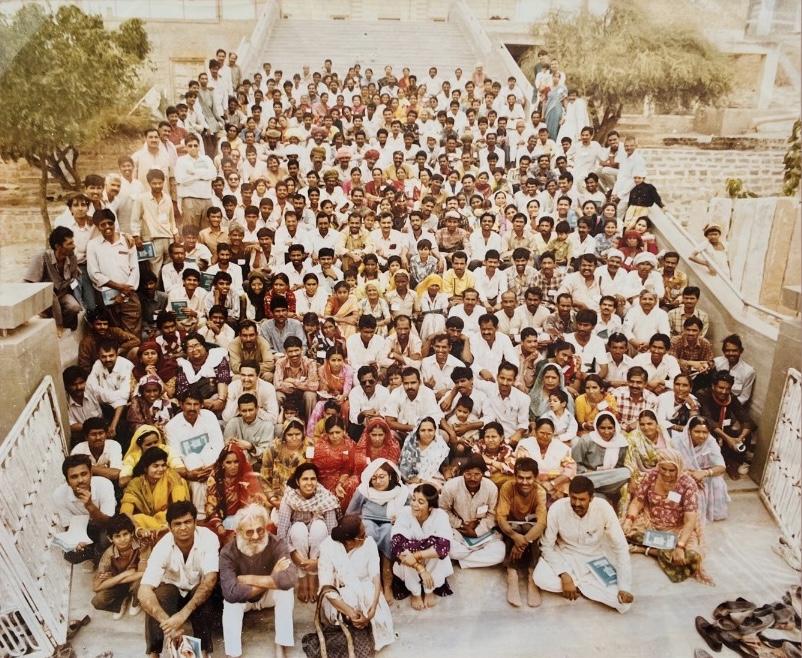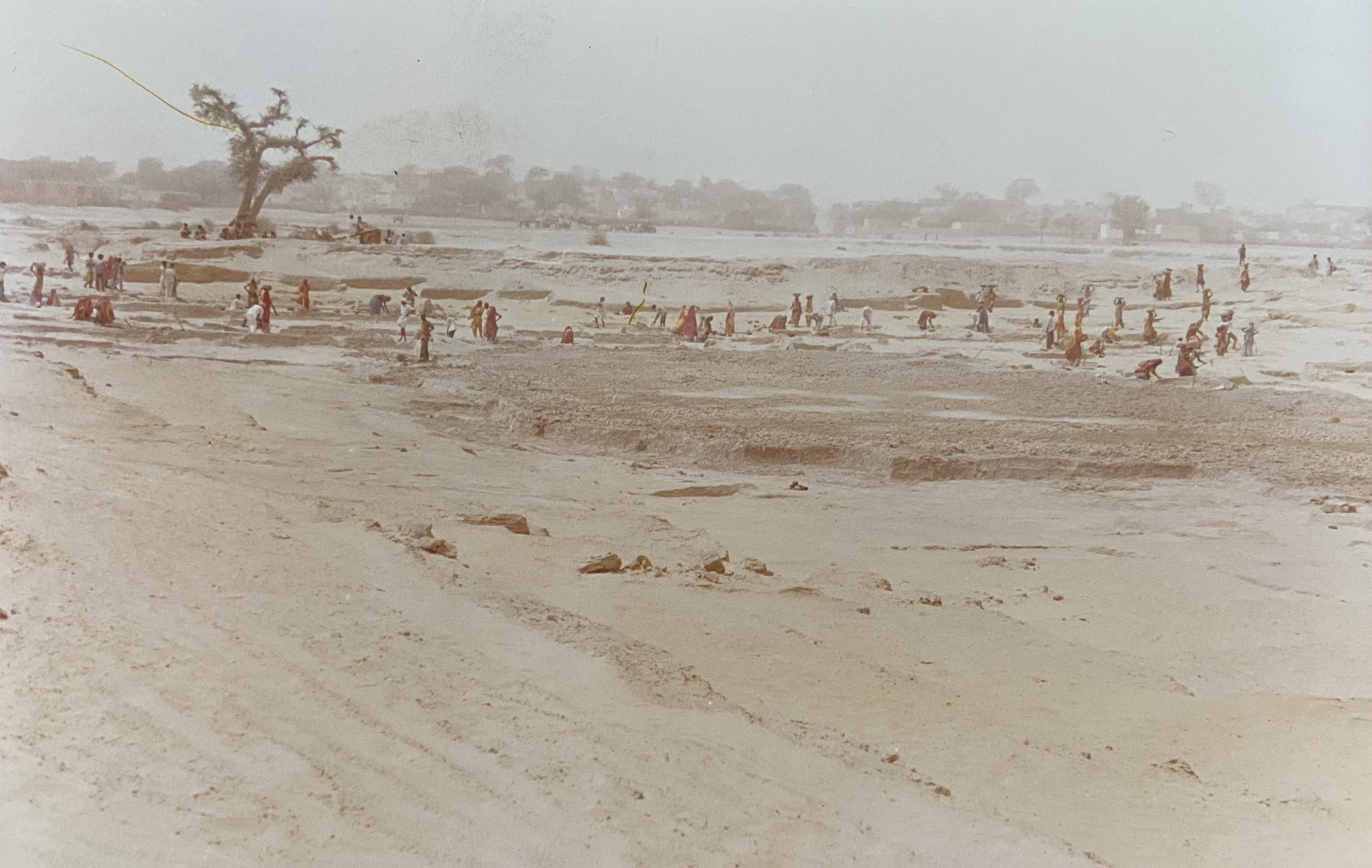URMUL Dairy (Uttar Rajasthan Milk Union Limited) was set up in the arid region of Bikaner district in 1972 as part of Operation Flood II. Professionally the URMUL dairy acted as a district unit of Rajasthan Cooperative Dairy Federation, which was a kind of public sector undertaking. The milk procurement at the village dairy cooperatives in- creased from 200 liters per day in 1972 to 1,50,000 liters a day in 1984. Farmer members of the dairy co-operatives gave the mandate for the creation of URMUL TRUST 1984 to reach out to the underprivileged in rural areas, especially women and children.The aim was to facilitate access to good health care. Initial financial support to the Trust was in the form of a corpus created from a subsidy of three paise per liter of milk collected by the milk unions. Health services the TRUST were primarily meant for the members of the village-level milk societies in the northern Lunkaransar tehsil of the Bikaner district.

1987 saw the worst drought of the century in western Rajasthan and Bikaner was one of the badly hit districts. The trikaa/ of ann, Jal & chara (food, water & fodder) left thousands of families desolate and wiped off about half of the livestock. It became imperative to provide and generate access to means to people faced with starvation.Till then, the URMUL Trust’s programmes were skewed essentially towards service delivery in “soft” sectors such as health and education. The drought drastically changed and radicalized that. For the young members of the URMUL Trust it was just not possible to restrict themselves to ” only distributing medicines in the villages”. Village groups, in most cases women, were organized to stir the district administration to quick action and sanction ‘Famine Relief Works’.The families left destitute by the drought soon realised the value of collective action. It was at this time that the first seeds of the sangathans were sown. Beginnings were made of a relationship with the people in the villagers, which was to continue and thicken in the years to come. And till date these are strong support and network systems at the village level.

With the drought, dawned the realization that the development agenda needed to be broadened to address the needs of the rural poor, deprived, and vulnerable groups, especially women and children. URMUL Trust launched a multilevel attack on poverty. URMUL Trust has facilitated three integrated development projects. They stand as important landmarks in the growth of the URMUL family. These integrated development projects cover around one hundred and fifty villages and settlements in the districts of Bikaner, Jodhpur, and Jaisalmer.Work at Lunkaransar expanded from six villages in 1984 to 22 villages in 1987-88. These were the beginnings of the first integrated development program in 33 villages of Lunkaransar tehsil (subsequently expanded to 40 villages) covering a population of 30,000 people in 1988. In 1988, the URMUL Trust expanded its activities to the command area of the Indira Gandhi Canal. A branch of the Trust was set up at Bajju in Kolayat tehsil so as to provide community-based developmental services to the highly scattered population of the area. Initial activities included community-based health services to villages, enabling local cattle herdsmen to make an occupational shift from animal husbandry to irrigated agriculture forced on them by the advent of the canal, and building up training infrastructure. Financial support was available from the Ministry of Human Resource Development, The Aga Khan Foundation, and the Save the Children Fund. In 1991, it was decided to take on the role of the nodal implementing agency for the Integrated Child Development Scheme (ICDS) in Kolayat tehsil of the district, which expanded the Trust’s work in the Kolayat Block to 113 villages.

